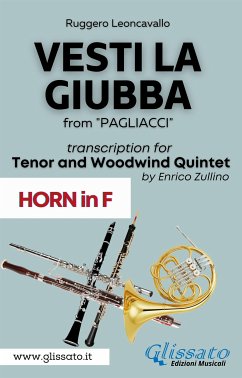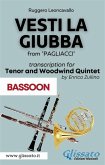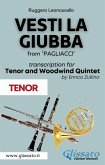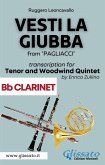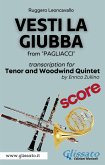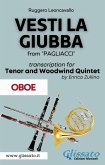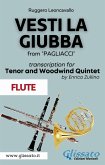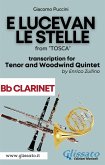- "Vesti la giubba" is sung at the conclusion of the first act, when Canio discovers his wife's infidelity, but must nevertheless prepare for his performance as Pagliaccio the clown because "the show must go on". The aria is often regarded as one of the most moving in the operatic repertoire of the time. The pain of Canio is portrayed in the aria and exemplifies the entire notion of the "tragic clown": smiling on the outside but crying on the inside. This is still displayed today, as the clown motif often features the painted-on tear running down the cheek of the performer. Enrico Caruso's recordings of the aria, from 1902, 1904 and 1907, were among the top selling records of the 78-rpm era and reached over a million sales. This aria is often used in popular culture, and has been featured in many renditions, mentions, and spoofs.
Dieser Download kann aus rechtlichen Gründen nur mit Rechnungsadresse in A, B, BG, CY, CZ, D, DK, EW, E, FIN, F, GR, HR, H, IRL, I, LT, L, LR, M, NL, PL, P, R, S, SLO, SK ausgeliefert werden.

